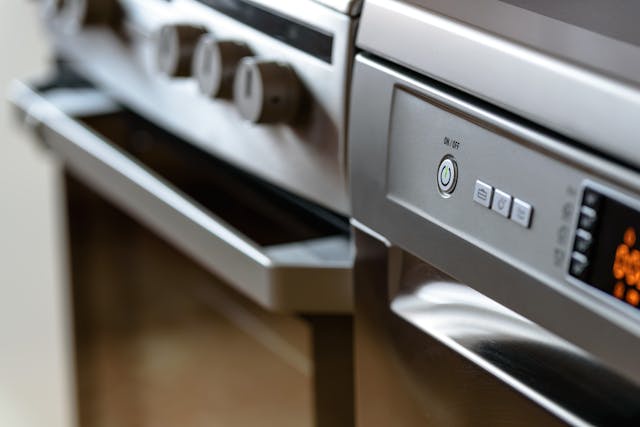In the heart of every kitchen, reliable equipment is the cornerstone of culinary success. From stovetops and ovens to knives and cutting boards, proper maintenance is essential for preserving the longevity and performance of your kitchen tools. In this guide, we'll explore expert tips and best practices for maintaining and caring for your kitchen equipment, ensuring that it remains in peak condition for years to come.
-
Cleanliness Is Key
Regular cleaning is the first line of defense in maintaining the integrity of your kitchen equipment. Here are some cleaning tips tailored to specific tools:
Cookware: Hand wash pots, pans, and utensils with warm, soapy water after each use, using a non-abrasive sponge to remove food residue. Avoid using harsh cleaning agents or abrasive pads, as they can damage the surface of your cookware.
Knives: Wash knives by hand with mild detergent and warm water, taking care to dry them immediately to prevent rust and corrosion. Avoid soaking knives in water or running them through the dishwasher, as this can dull the blades and weaken their structure.
Cutting Boards: Clean cutting boards with hot, soapy water after each use, and sanitize them regularly with a solution of bleach and water to kill bacteria. Consider using separate cutting boards for raw meat, poultry, and vegetables to prevent cross-contamination.
-
Proper Storage Techniques
Proper storage is essential for preventing damage and prolonging the lifespan of your kitchen equipment. Here are some storage tips to keep your tools in top condition:
Cookware: Store pots, pans, and lids in a dry, well-ventilated cabinet or pantry to prevent moisture buildup and corrosion. Consider using pot racks or hanging hooks to maximize storage space and prevent scratches.
Knives: Store knives in a knife block, magnetic strip, or blade guard to protect the blades from damage and prevent accidents. Avoid storing knives in drawers or utensil organizers where they can rub against other objects and become dull.
Small Appliances: Store small appliances like blenders, food processors, and stand mixers in a clean, dry area away from heat sources and moisture. Cover appliances with dust covers or towels to protect them from dust and debris when not in use.
-
Regular Maintenance Checks
Routine maintenance checks are essential for identifying and addressing any issues before they escalate into costly repairs. Here are some maintenance tips to keep your kitchen equipment in top shape:
Inspect cookware for signs of wear and tear, such as warped bottoms, loose handles, or chipped enamel. Replace damaged cookware promptly to prevent accidents and ensure even cooking.
Sharpen knives regularly to maintain their sharpness and cutting performance. Use a sharpening stone or honing steel to sharpen blades at the correct angle, or take knives to a professional sharpener for professional sharpening services.
Clean and lubricate moving parts of small appliances like blenders, food processors, and stand mixers to prevent friction and ensure smooth operation. Refer to the manufacturer's instructions for specific maintenance procedures and recommended lubricants.
-
Avoiding Common Mistakes
In addition to proper maintenance practices, it's essential to avoid common mistakes that can compromise the integrity of your kitchen equipment. Here are some pitfalls to avoid:
Using metal utensils on non-stick cookware: Metal utensils can scratch and damage the non-stick coating of pans and pots, reducing their lifespan. Use silicone, wooden, or plastic utensils instead to prevent damage.
Overloading small appliances: Overloading blenders, food processors, and stand mixers can strain the motor and cause premature wear and tear. Follow the manufacturer's guidelines for maximum capacity and avoid overloading appliances.
Neglecting to dry equipment thoroughly: Moisture is the enemy of kitchen equipment, as it can lead to rust, corrosion, and mold growth. Always dry equipment thoroughly after cleaning to prevent damage and ensure longevity.
Conclusion:
Proper maintenance is the cornerstone of preserving the longevity and performance of your kitchen equipment. By following these expert tips and best practices for cleaning, storing, and maintaining your tools, you can ensure that they remain in top condition for years to come, empowering you to create culinary masterpieces with confidence and ease.


No comments yet